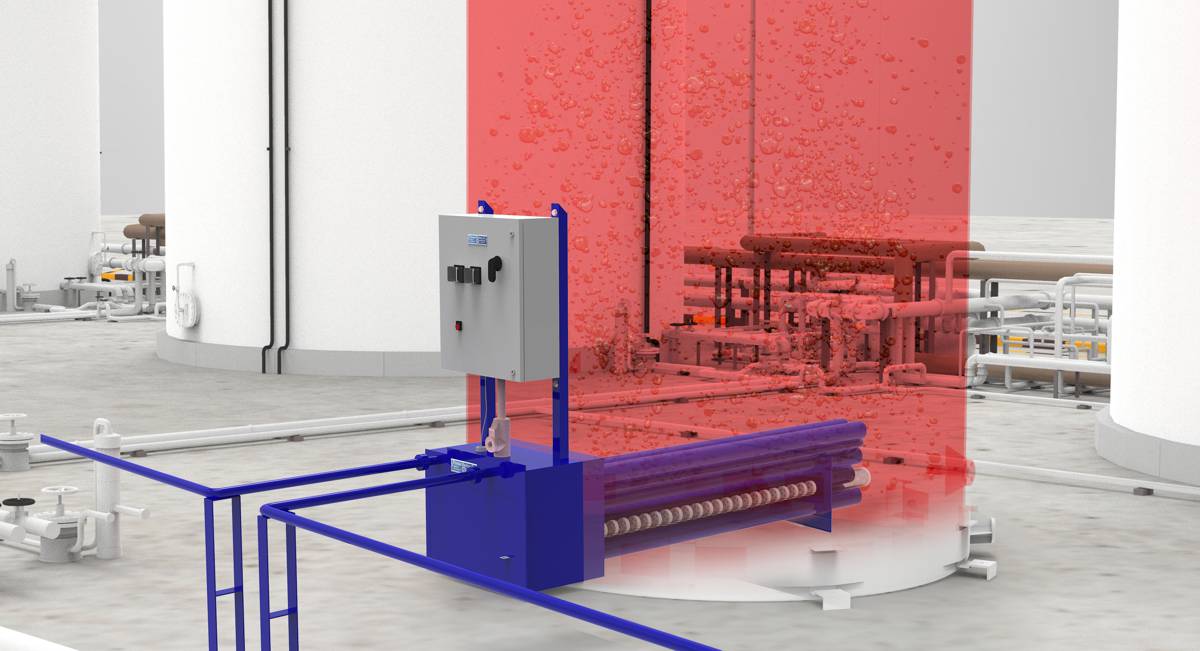PHCo clean and worry-free heat solutions to feature at CONEXPO-CON/AGG
Attendees at CONEXPO-CON/AGG, March 14 – 18, 2023, will find a simple option for improving their asphalt operation’s heat requirements when they visit Process Heating Company (PHCo) at the Las Vegas Convention Center, booth #C33051 in Central Hall.
Animated, cutaway videos effectively illustrate from an insider’s view exactly what sets the company’s Lo-Density® drywell-style electric heat apart from fossil-fuel burners. From PHCo’s Unitized Asphalt and Industrial Tank Heaters, Hot Oil Circulation Heaters, and All-In-One Heaters, to its unique Distributor Truck Tank Heaters, PHCo’s simple, clean heat source can positively affect asphalt producers’ and contractors’ operations — lowering operating costs, improving product quality, reducing maintenance, significantly increasing heater life, and enhancing sustainability.
PHCo’s full line of electric Lo-Density heaters offers 100% energy-efficient heating, when compared to the inefficient burning of fossil fuels. This is because all of the energy is used to heat the product, with no heat or emissions exhausted into the air. Unlike fossil-fuel-fired burners, which, at best, offer 80% to 85% efficiency when new and then drop in efficiency over time, electric heaters always provide 100% energy efficiency, even after many years or even decades of operation. They also are virtually maintenance-free. In addition, electric heaters may be interfaced and coordinated with other plant electrical equipment so that their load can be reduced to base rates, thus preventing increased demand charges or peak-use rates, ultimately lowering consumption cost.
The company’s Lo-Density heating systems feature low heater sheath temperature, reducing potential damage to liquid asphalt cement and emulsions, while keeping buildup/coking to a minimum in tanks and hot oil systems. This low-watt-density heat also greatly extends heater life. PHCo Lo-Density heaters are known to provide service life of three decades or more.
The drywell design of PHCo’s electric heaters allows service personnel to remove and perform minimal required maintenance on the heating elements without draining the tank that they are heating. In addition, electric heat is safe and environmentally friendly, helping customers to achieve sustainability goals, including goals set forth by NAPA’s The Road Forward initiative, because it heats without combustion — eliminating stacks that must be monitored for emissions, along with eliminating air quality and boiler permits that must be pursued and maintained. It also eliminates a source of fuel spills, protecting groundwater supplies.
Process Heating Company has more than 75 years of experience in manufacturing 100%-efficient
Lo-Density® low-watt-density electric heating systems, designed to spread heat over a larger surface area, eliminating high element temperatures that damage the product. Common products that benefit from electric heat include asphalt, light and heavy fuel oils, diesel, biodiesel, glycerine, lube oils, hydraulic fluids, resins/epoxies, animal fats, molasses, and other materials that are sensitive to high temperatures.





























